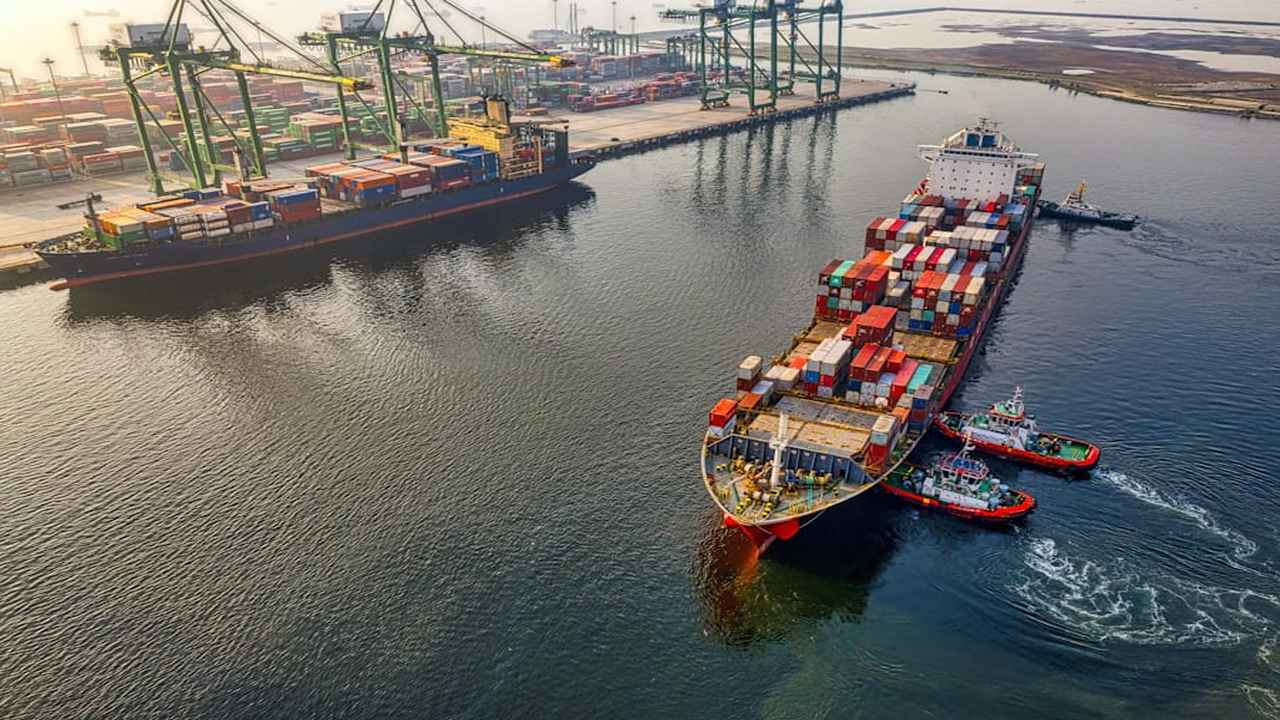 The United Kingdom is making a resounding commitment to decarbonizing shipping, with a total investment of £1.5 billion ($2.05 billion) from the government and private industry. This significant funding injection, announced during London International Shipping Week, underscores the country's dedication to achieving net zero goals by 2050. The UK SHORE initiative, supported by key players like Peel Ports, NatPower Marine, and the Port of Tyne, aims to drive research and development of clean fuel and technology, creating thousands of jobs and positioning the UK as a global leader in sustainable maritime solutions.
The United Kingdom is making a resounding commitment to decarbonizing shipping, with a total investment of £1.5 billion ($2.05 billion) from the government and private industry. This significant funding injection, announced during London International Shipping Week, underscores the country's dedication to achieving net zero goals by 2050. The UK SHORE initiative, supported by key players like Peel Ports, NatPower Marine, and the Port of Tyne, aims to drive research and development of clean fuel and technology, creating thousands of jobs and positioning the UK as a global leader in sustainable maritime solutions.
The Impact of UK's Decarbonizing Shipping Initiative
The United Kingdom's bold move to invest £1.5 billion in decarbonizing shipping reflects a strategic shift towards sustainable maritime solutions. With a significant portion of the funding coming from private industry players like Peel Ports, NatPower Marine, and the Port of Tyne, the initiative is set to revolutionize the sector. This investment not only underscores the country's commitment to achieving net zero emissions by 2050 but also positions the UK as a global leader in clean energy transition within the maritime industry. The infusion of funds into research and development of clean fuel and technology is expected to create thousands of jobs, fostering economic growth and sustainability in coastal communities.
Driving Innovation and Job Creation Through Clean Technology
The allocation of £448 million by the UK government towards decarbonizing shipping through the UK SHORE initiative paves the way for groundbreaking advancements in clean technology. Companies like NatPower Marine, with their focus on electrification of ships and shoreside power solutions, are at the forefront of driving innovation in the maritime sector. By committing £250 million over the next five years, NatPower Marine not only demonstrates its dedication to sustainability but also contributes to job creation, with the UK government projecting the creation of 2,000 skilled jobs. This strategic investment in clean technology not only reduces carbon emissions but also propels the UK towards a greener and more prosperous future.
Strengthening Infrastructure and Supply Chain for Sustainable Growth
The infusion of £700 million in private sector funding from key players like Peel Ports, NatPower Marine, and the Port of Tyne signifies a collaborative effort to strengthen the infrastructure and supply chain for sustainable growth. Peel Ports' earmarking of £300 million for ports in Liverpool, Great Yarmouth, and Hunterston, along with the Port of Tyne's £150 million investment in clean energy development, highlights a strategic focus on creating world-class infrastructure to support a growing supply chain in offshore wind and manufacturing. This concerted effort not only accelerates the transition towards clean maritime solutions but also positions the UK as a hub for sustainable infrastructure development, attracting further investments and bolstering international leadership in the shipping industry.
Fostering International Collaboration and Research in Clean Power
The UK's commitment to hosting the Zero Emission Vessels and Infrastructure competition (ZEVI2) in 2026, as part of the UK SHORE initiative, underscores a strategic focus on fostering international collaboration and research in clean power. Companies like NatPower Marine and Peel Ports, through their substantial investments, are driving the development of novel technologies that have the potential to revolutionize the maritime industry. By supporting early scientific research and development of clean power technologies, the UK is not only advancing its competitive advantage but also paving the way for increased exports and international market penetration. This collaborative approach to innovation not only accelerates the adoption of clean maritime solutions but also solidifies the UK's position as a global leader in sustainable shipping practices.
Conclusion
The United Kingdom's resolute commitment to decarbonizing shipping through the £1.5 billion investment showcases a paradigm shift towards sustainable maritime solutions. With key players like Peel Ports, NatPower Marine, and the Port of Tyne spearheading innovation, the UK is poised to lead the global clean energy transition in the maritime industry. This strategic initiative not only fosters job creation and economic growth but also fortifies the country's position as a hub for sustainable infrastructure development and international collaboration. As the UK charts a course towards net zero emissions by 2050, the ripple effects of this bold move resonate far beyond its shores, inspiring a new era of clean and prosperous maritime practices worldwide.